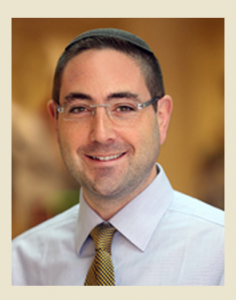
Living Torah by Rabbi Enkin
This week’s Torah portion is Vayeira (Genesis 18:1 -22:24). Vayeira is full of the many acts of kindness that our forefather Abraham was known to perform. To begin with, we read how immediately after the 99 year old Abraham circumcised himself, just as God had commanded him to, he put aside his pain in order to seek out guests in order to fulfill the mitzvah of showing hospitality.
As the Torah tells us, Abraham was sitting by his tent as he saw three desert wanderers in the distance coming towards his tent. He begs them to stay and rest a little bit and to have something to eat. He then rushes to tell Sarah that guests have arrived and that she should start baking bread and cake. Not resting just yet, Abraham then rushes to the animals to prepare some meat for his guests to eat. (Yes, this is the same 99 year old that just circumcised himself.). We see that Abraham spared no expense or difficulty in order to provide a quick and abundant meal for his guests.
While there seems to be no corners cut when it comes to the “smorgasbord” that the angels were provided with, there is something strange regarding the beverages at this feast. The Torah tells us that Abraham only offered his guests “a little bit of water”. The commentators quickly note that there seems to be a discrepancy between the generosity regarding food, and that regarding the water.
Why the difference? Why was he so stingy with the water?
There is a famous story concerning the saintly Rabbi Yisrael Salanter. Rabbi Salanter was once invited for a meal at the home of a wealthy individual. The meal began, of course, with the netilat yadayim ritual, the pre-meal hand washing. However, it was noticed that while everyone washed their hands with an abundance of water, Rabbi Salanter washed his hands with only the minimal amount of water required.
During the meal, the host could not hide his curiosity anymore and asked Rabbi Salanter why he used so little water in order to perform the pre-meal hand washing.
“Rabbi!” He exclaimed, “Why did you use so little water to wash your hands? Thank God, I lack nothing and everything –especially water—is available in abundance! We are also taught that those who wash their hands with an abundance of water will receive extra blessings!”
Rabbi Salanter answered with the following question: “How do you get the water – not from your home but from the well, is that right?”
“That woman over there is my maid. Her job is to bring water form the well as needed” said the man.
“I thought so” said Rabbi Salanter. “I couldn’t bring myself to wash with more water than truly needed knowing that your maid will then be forced to schlepp more water from the well. What a backbreaking job! I don’t want her to have to work so hard for me. I am much happier using the minimal amount of water if doing so will save her time, pain, and hard labor! God will send me blessing through the performance of some other mitzvah.”
This is why Abraham was stingy on the water. The Torah tells us that he too had a maid, of sorts. He had designated water carrier. When it came to preparing food for the guests — that was completely under his control. Abraham gave it his all. However, in the case of the water, Abraham did not offer it in abundance knowing that someone else will be forced to work hard in order to supply it. Abraham (and Rabbi Salanter after him) are teaching us an important lesson: a lesson in having sensitivity to others.
This is a lesson that we can take with us and implement in our daily lives. We must lean to care for others, their needs, and their challenges. This is especially true when it comes to asking for favors or otherwise imposing on the time or convenience of others. Kindness is the way of the Torah, and the path to acquiring spiritual heights and favor in God’s eyes.
What a privilege it is to be part of such a heritage!
Click below to read more of my Torah articles about this week’s fascinating Torah portion:
1. Abraham: Lessons of Kindness and Brotherhood
2. Abraham: Kindness at Any Cost!
Shabbat Shalom from Israel!
Rabbi Ari Enkin


